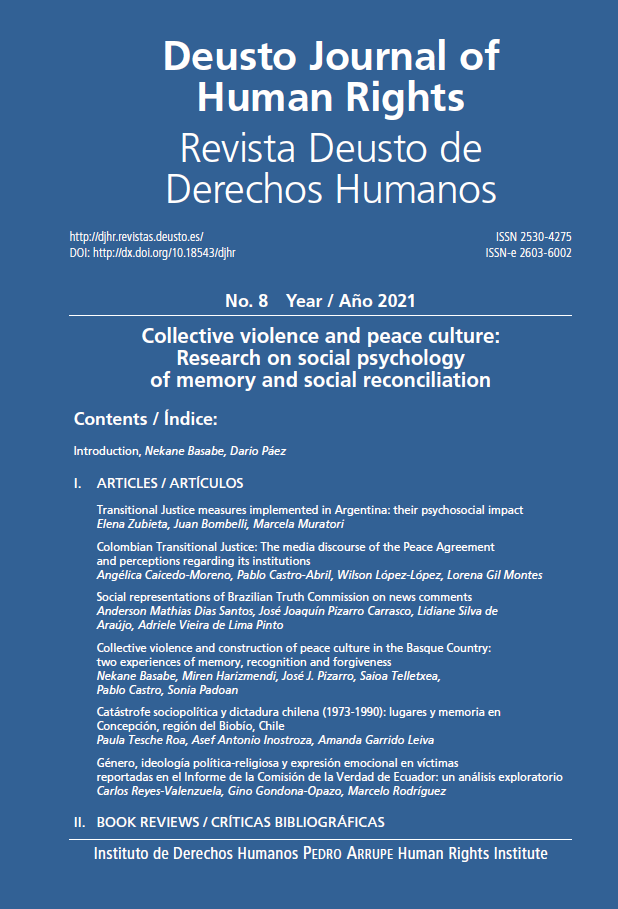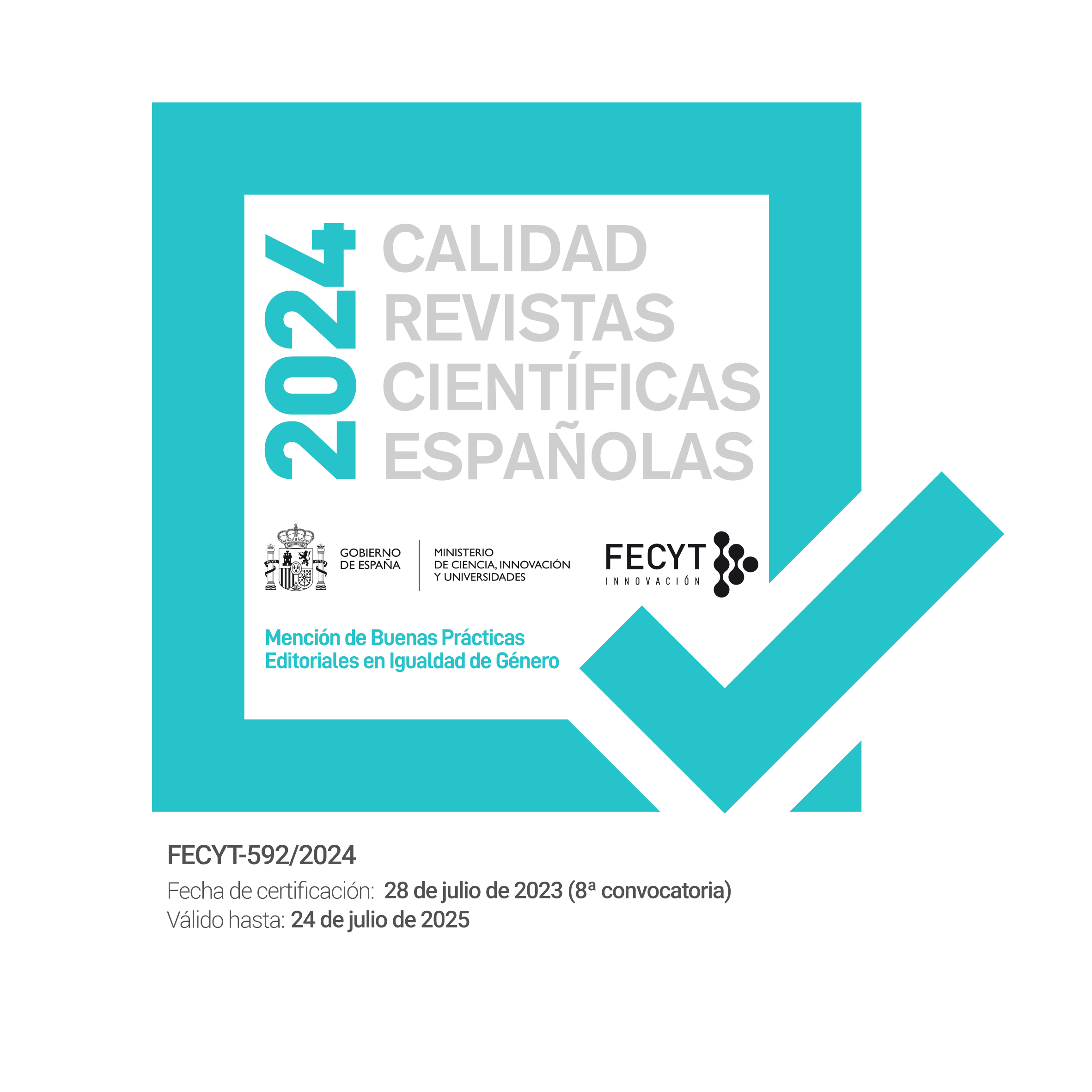Violencia colectiva y cultura de paz: investigación en psicología social de la memoria y la reconciliación social
Introducción al monográfico
Resumen
Este monográfico difunde los resultados de varias investigaciones en el campo de la psicología social y comunitaria. Los estudios se focalizan en los esfuerzos para construir una cultura de paz en las sociedades post-conflicto atravesadas por la violencia colectiva y socio-política, habiendo sufrido múltiples y persistentes violaciones de los Derechos Humanos. Se recogen seis estudios procedentes de Argentina, Brasil, País Vasco, Chile, y Ecuador, presentado resultados en relación a los efectos de los rituales de reparación y las Comisiones de la Verdad y la Reparación, combinando diferentes métodos y estrategias de análisis, que incluyen estudios de encuesta, análisis de contenido de noticias de prensa y medios de comunicación, evaluación de intervenciones comunitarias, y análisis cualitativos de documentos. Finalmente, se comentan dos libros. El primero, un libro de una serie de Psicología de Paz, que explora las implicaciones y dificultades que afrontan las sociedades que han experimentado conflictos de violencia colectiva de gran magnitud. El segundo libro está estructurado en torno al problema de las violaciones de los Derechos Humanos y cómo afrontarlos, de los conflictos sociopolíticos y la construcción de una cultura democrática y pacífica en Latinoamérica.
Descargas
Citas
Čehajić-Clancy, Sabina, Amit Goldenberg, James J. Gross, and Eran Halperin. 2016. Social-Psychological Interventions for Intergroup Reconciliation: An Emotion Regulation Perspective, Psychological Inquiry, 27, no 2: 73-88. https://doi.org/10.1080/1047840X.2016.1153945.
Gibson, James L. 2004. Overcoming Apartheid: Can Truth Reconcile a Divided Nation? New York: Russell Sage Foundation.
Halbwachs, Maurice 1950/1968. La mémoire Collective. París: PUF.
López López Wilson and Laura K. Taylor, eds. 2021. Transitioning to Peace: Promoting Global Social Justice and Non-violence. Springer: Cham.
Martín-Beristain, Carlos, Dario Páez, Bernard Rimé, and Patric Kanyangara. 2010a. «Psychosocial effects of participation in rituals of transitional justice: A collective-level analysis and review of the literature of the effects of TRCs and trials on human rights violations in Latin America.» Journal of Social Psychology 25, no 1: 47-60. https://doi.org/10.1174/021347410790193450.
Páez, Darío, Carlos Martin-Beristain, José Luis González, Nekane Basabe, and Joseph de Rivera. 2011. Superando la Violencia Colectiva y Construyendo Cultura de Paz. Madrid: Fundamentos.
Rimé, Bernard, Patrick Kanyangara, Vincent Yzerbyt, and Dario Paez. 2011. «The impact of Gacaca Tribunals in Rwanda: Psychosocial effects of participation in a truth and reconciliation process after a genocide.»
European Journal of Social Psychology 41, no. 6: 695-706. https://doi.org/10.1002/ejsp.822.
Deusto Journal of Human Rights / Revista Deusto de Derechos Humanos es una revista de Acceso Abierto; lo que significa que es de libre acceso en su integridad inmediatamente después de la publicación de cada número. Se permite su lectura, la búsqueda, descarga, distribución y reutilización en cualquier tipo de soporte sólo para fines no comerciales y según lo previsto por la ley; sin la previa autorización de la Editorial (Universidad de Deusto) o la persona autora, siempre que la obra original sea debidamente citada (número, año, páginas y DOI si procede) y cualquier cambio en el original esté claramente indicado. Cualquier otro uso de su contenido en cualquier medio o formato, ahora conocido o desarrollado en el futuro, requiere el permiso previo por escrito de la persona titular de los derechos de autoría.



3.jpg)
3.jpg)
3.jpg)
.jpg)








